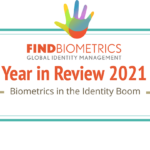 Interpol is currently in the final stages of the development of an international voice biometrics database to be shared with member police agencies.
Interpol is currently in the final stages of the development of an international voice biometrics database to be shared with member police agencies.
Called the Speaker Identification Integrated Project, it includes voice samples from 192 law enforcement agencies, and is designed to let Interpol members and affiliates use voice recognition technology to match suspects against criminal databases – an intercepted call between terrorists, for example, could lead investigators to their identities with the help of the SIIP system. But the system goes a step further, matching voice samples against social media accounts when they don’t match existing criminal records.
Work on the project has been led by Verint, a firm that has applied its voice biometrics technology for caller authentication in the enterprise sector, as well. In working with Interpol, the company is helping the international police alliance in its intensifying effort to leverage biometric data in the fight against crime and terrorism, with Interpol also encouraging its partners to share fingerprint and facial biometrics data.
As The Intercept reports, however, the SIIP poses some civil rights and privacy risks. There is little oversight in how this kind of intelligence is collected and shared, and there’s a good chance that a police agency in one country will have collected voice biometrics in a manner that would violate civil protections in another country. There is also the risk that individuals who have been deemed criminals due to matters of dissent in authoritarian regimes will be flagged as such by police agencies in more liberal nations.
Interpol itself is aware of these issues, but the organization evidently sees the benefits of this technology outweighing its risks.
Source: The Intercept
–
June 27, 2018 – by Alex Perala






Follow Us